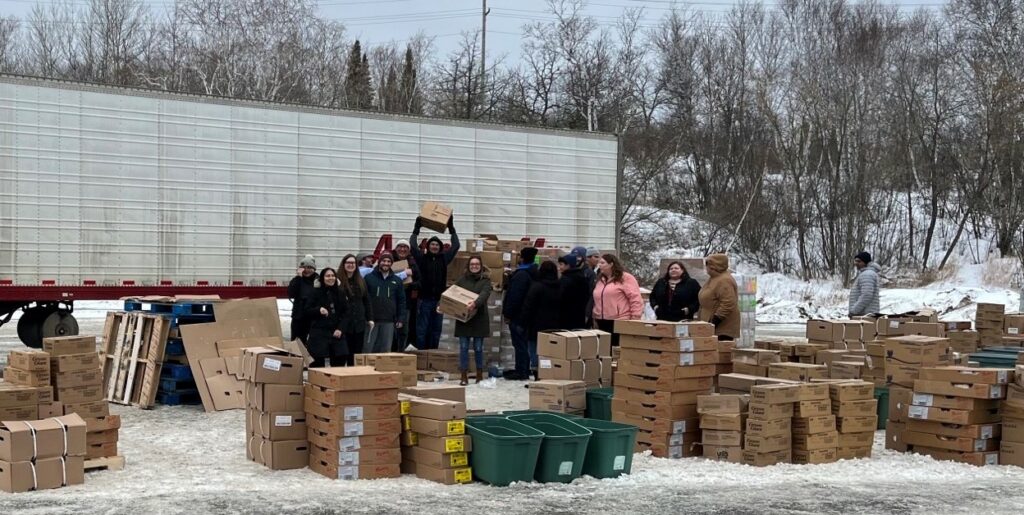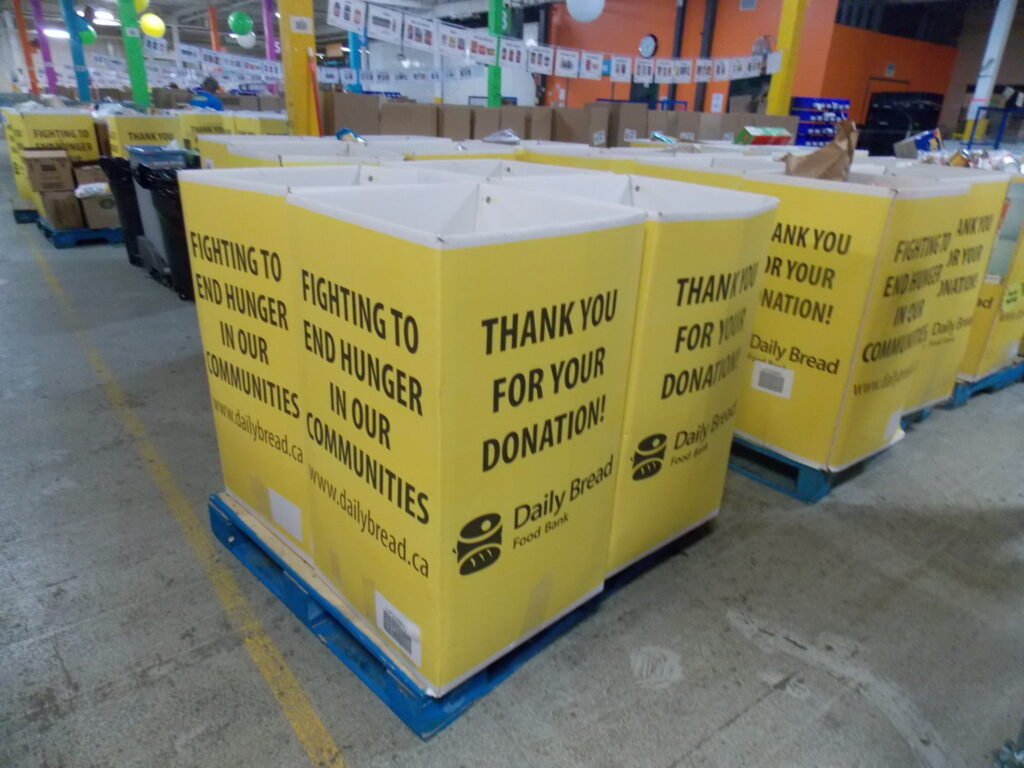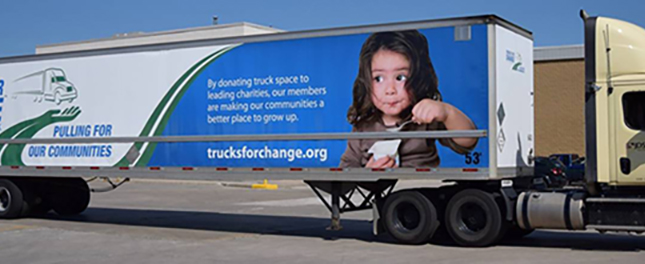Trucks For Change is gearing up to help more Canadians in need this year by continuing to connect carriers and charities — leveraging extra truck and trailer capacity to help move goods at heavily discounted rates or no cost at all.
Last year, 23 carriers helped Food Banks Canada ship 328 pallets of supplies to 77 food banks across Canada. And last fall the network helped move another 700,000 pounds of discounted food to 62 food banks through the For Good Foundation.
Those are only the latest examples.
Since 2011, the non-profit’s network has shipped 23.6 million pounds of charitable donations over 650,000 miles (more than 1 million kilometers), using donated and discounted services valued at a collective $535,000.

“We live in a country where we are extremely fortunate with what we have overall. That does not mean to say that there aren’t a lot of Canadians who are not as fortunate as many of us. Particularly in the business world where companies have success, it does feel good to help when you can,” says Betsy Sharples, executive director, Trucks For Change Network.
Trucks for Change now connects a network of about 60 carriers to requests from charities, using an online freight matching tool known as MOVEMatrix to match the loads.

Members may offer “pro-bono” service or preferred rates, depending on their fleet positioning and ability to help, while charities pay the carriers directly.
And there was plenty of activity in 2022.
“Our philosophy is many hands make light work. We could have used a handful of carriers to manage this, but we want to spread it to demonstrate the [trucking] industry is a very charitable and giving community,” Sharples says.
Beyond food banks, the non-profit also supported the After The Bell program that helps children who rely on in-school breakfast and lunch programs throughout summer months. ShipNorthAmerica helps organize those shipments.
Seven companies – carriers and sponsors – also participated in builds for a Habitat for Humanity site in Waterloo, Ont. Fifty people participated in teams of three, six, nine and 10, and raised financial donations in the process.
The non-profit is looking to expand that experience so carriers across the country can participate at various locations.
And this year, Trucks For Change plans to continue working with the For Good Foundation and find ways to add efficiencies and streamline the process for carriers and food banks.

The non-profit will also be involved with Food Banks Canada’s After The Bell program, sorting and boxing the food. “We will ask corporate teams to help us out. It will be good for teambuilding,” Sharples says.
Instead of developing major campaigns, however, the plan is to spread out the moves over the course of the year.
“Trucks for Change is the giving side of the industry. Employees appreciate that the organization they are working for has a heart,” Sharples says, urging more carriers to register with the organization.
She says younger people entering the workforce are looking for organizations that do more than turn profits. Companies that are active in their communities and support vulnerable Canadians are seen in a positive light.
It is also a good way to engage employees and keep them motivated, she adds.


